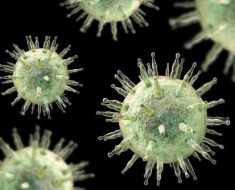The DFG's Permanent Senate Commission on Animal Protection Experimentation has published a detailed "Position Paper on Ensuring High-Performance Biomedical Research While Maintaining the Highest Animal Welfare Standards". Based on nine premises, the publication formulates recommendations for the creation of framework conditions to ensure high-performance biomedical research in Germany and the European Union while at the same time meeting the very highest standard in terms of research quality and animal welfare. The paper focuses on all aspects of knowledge-led research – including teaching and the transfer of knowledge to application.
In view of efforts by policymakers and society at large to promote a phase-out of animal experiments, the Senate Commission emphasizes in its paper the necessity of the freedom of science enshrined in the German constitution in the interests of scientific progress and innovation in medicine and biomedicine. In this connection, the freedom of science also includes a free and diverse choice of methods, which may also include animal experiments – providing a rigorous ethical assessment is carried out beforehand and if no other animal-free methods are available. The paper emphasizes that animal experiments will remain indispensable for the foreseeable future and that a fundamental ban on animal experiments would endanger Germany and the EU as a whole in terms of their status as a research hub and their innovation potential. It would increase dependence on biomedical innovation from non-European sources, reduce sovereignty and the ability to act independently in the face of future challenges, and remove control over animal welfare from Germany and the EU.
The aim of the paper is firstly to draw attention to one-sided developments, but it also seeks to set out the framework conditions that have to be established so as to continue to be able to guarantee animal welfare and high-quality research in the future. To this end, the paper is aimed not just at researchers and research institutions, but at all stakeholders involved in animal experimentation, i.e. political decision-makers, ministries and authorities, as well as the media, the medical profession and the pharmaceutical industry.
Specific recommendations include the principle that animal welfare measures should always be considered in the context of scientific validity in order to achieve the desired effect. The selection of biomedical methods and models must always be based on their suitability in pursuing the relevant research questions in order to ensure scientific quality. The promotion and development of non-animal alternative methods must be practice-oriented with a view to being transferred to day-to-day research work. In addition, the DFG Senate Commission recommends that science and research should communicate more transparently about the existing use of animal experimentation; this also applies to research funders, the media and manufacturers, as well as those who use products that result from animal experiments. With regard to policymakers, the paper calls for inter-ministerial cooperation to better address the link between animal welfare and quality in research in future in the context of legislative procedures and subsequent legislative and executive steps.
This aim of this publication by the DFG Senate Commission is also to respond to the fact that public debate in recent years has increasingly focused on the replacement of animal experiments. By contrast, this paper stresses the equal importance of all aspects of the 3R principle (Replacement, Reduction, Refinement), as is well-established in research. The central guiding principle is the professional, responsible handling of laboratory animals to ensure the highest level of animal welfare and quality in research.
"Animal experiments are still hugely important in biomedical research," said the chair of the DFG Senate Commission on Animal Protection and Experimentation, Professor Dr. Brigitte Vollmar, commenting on the publication.
Due to the fact that animals are particularly worthy of protection, as anchored in the German constitution in particular and also at EU level, such experiments are rightly the subject of ongoing public and political discussion. Within this context, the Senate Commission's position paper makes a timely contribution to the ongoing debate on animal experimentation from a scientific perspective."
Dr Brigitte Vollmar, Professor, German Research Foundation
Deutsche Forschungsgemeinschaft
Posted in: Life Sciences News
Tags: Biomedicine, Laboratory, Medicine, Research
Source: Read Full Article





